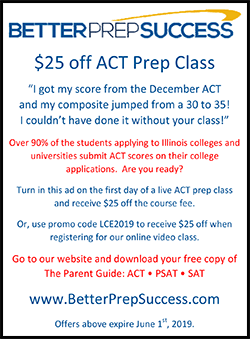|
 The first would be those capable of affording
private tutoring in the home. The second would be those students who
are struggling with classwork. In the latter’s case, these students
are found at all levels of education, and are more likely to be the
perceived student to receive tutoring assistance. The first would be those capable of affording
private tutoring in the home. The second would be those students who
are struggling with classwork. In the latter’s case, these students
are found at all levels of education, and are more likely to be the
perceived student to receive tutoring assistance.
Sometimes, finding a tutor early can minimize the anxiety a student
feels and result in stronger grades. Student athletes and artists
can sometimes struggle to fit everything in their schedules, and
just need help organizing and maximizing their time.
However, tutoring as a practice is not just beneficial to students
who are privileged enough to receive it, or those who experience
difficulty in the classroom. The reality is that tutoring is
beneficial for all students, regardless of background or ability.
What is good tutoring?
According to Halina Goetz of Chapman University, a lot of parents
and students consider a tutor to be a sort of “homework machine.” In
this regard, a tutor is a good tutor when a low grade improves. This
is really a disservice to the student, the tutor, and the student’s
family.
The objective of tutoring should be to help a student become a
lifelong independent learner. If a student only walks away with an
ability to copy what a tutor says or does, they are not learning
critical thinking skills. This is no different than simple
memorization, which is already a problem for students and teachers.
For example, effective math tutoring should show how learning math
occurs in general, and not just what the answer to a problem is. A
math tutor is explaining both how a problem is solved, and what
exactly is occurring in the background, so to speak, for the problem
to work.

As another example, in writing assignments, a writing tutor is not
just telling a student what to write. A good writing tutor is one
that explains what exactly a teacher is hoping to gain from a
student’s writing. This is not just what good writing looks like,
but what good writing is doing for the reader.
Goetz says that this means effective tutoring “needs to be procedure
oriented not answer oriented.” By doing this, a student should have
a better understanding where they are struggling, not just “I don’t
get it.” This can annoy students, because most of them would rather
just be done with their work, but that attitude doesn’t help them
actually learn anything in the long run.
Learning is “a process of recall, comprehension, application,
analysis, synthesis and evaluation,” according to Goetz. An
effective tutor will ask questions of a student, hoping to see
evidence that the student can do each of these things, usually by
asking questions that are more than just simple yes-or-no questions.
Considering tutoring and finding a tutor
Before considering tutoring, it is important to review class
material, and find out if this is an issue of leaving homework wrong
or incomplete, or something else. Sometimes, a student can display
test anxiety or otherwise become much less confident in the
classroom. This can happen at all levels of education, from grade
school through college, and is nothing to be concerned about. There
is an idea that requiring further assistance makes a student
deficient in some way, and that simply is not true.
Some students benefit from tutoring if they struggle with attention
deficit hyperactivity disorder or other learning disabilities.
According to a story from the US News and World Report, a student
may qualify for “an individualized educational plan, or IEP, which
will provide school-based accommodations, such as extended time for
testing or one-on-one classroom help.” This can be seen at all
levels of education.
A tutor should receive professional training, and needs to be
enthusiastic about the subject matter. This can vary, depending on
what subject a student needs help with. Some educators believe every
tutor should be willing and able to work with every subject, and
that really is not reasonable, or easy to find.
Additionally, a tutor should possess a degree of empathy for
students they work with. This is important because a student may
become more frustrated before they understand the material. A good
tutor understands that, and is willing to work through the
frustration, not give up when emotions run high. This is also common
at all levels of education, and is part of the process.
Carole McGraw, a retired teacher and chemistry tutor
from Michigan, lays out suggestions for self assessment or finding a
tutor on behalf of a student:
Figure out where exactly you or the student are struggling. Identify
what kind of help they need, and what area of study they need
assistance with. Think about how you or the student learns best.
[to top of second column] |

Additionally, tutoring can sometimes cost additional
money; be honest with how much you are willing to spend on tutoring,
as costs can add up.
Call a school counselor or teachers. At all levels of education,
counselors are available to meet with students to discuss these
issues. They should have access to files on student progress
throughout their education, depending on the grade. Most schools
have a list of available tutors on file as well.
You may find that a retired teacher may be willing to help, or a
home-school instructor may be in the area. Make sure they know the
subject matter you need. Alternatively, some areas may have a
learning center nearby, like Sylvan or Kumon. Be aware that they
typically work with educational problems like reading comprehension
or phonics, rather than specific subjects, but they might also be
able to guide you in a direction.
Once you find a tutor, take time to ask questions to see how well
their skills match the task at hand. Ask about educational
backgrounds, experience they may have, instructional methodologies,
and what they expect from the student or family members.
During tutoring sessions, you want to monitor progress. Ask for
feedback from the student, or, if you are the student, keep detailed
notes on your tutoring sessions. If, after several sessions, you
don't see improvement, you may need to re-evaluate the problem, or
possibly move on to another tutor.
Tutoring is beneficial in multiple ways for students. The obvious is
an improvement in grades and class performance. But this is not the
only benefit.
The thing that students often lack when it comes to school work is
confidence. Sometimes, a student needs to hear from an outside
source that struggling with learning is perfectly okay. Teachers and
parents may tell them these things, but for some students, it sounds
inauthentic.
Additionally, sometimes the student needs another set of eyes to
actually look at their work. Teachers sometimes forget that some
students really need lesson material broken down to its absolute
simplest terms, and a tutor can often do that, explaining material
in a much more understandable manner.
Finally, tutoring sessions let students know that there is a support
structure in place to guide them and help. Students get an idea
sometimes that everything in school has to be accomplished alone,
and that simply isn’t true. Tutoring lets students know that there
are people available to lend a hand in their education, and they
shouldn’t have to be afraid to learn.
[Derek Hurley has been a professional English tutor
for a number years and he teaches college English classes.]

Sources
Goetz, Halina.
“What Tutoring Is and What Tutoring Is Not. - Defining and Choosing
a Good, Effective Tutor.” Wilkinson College of Arts, Humanities, and
Social Sciences, 9 Feb. 2016, blogs.chapman.edu/scst/2016/02/09/what-tutoring-is-and-what-tutoring-is-not/.
Hyken, Russel. “Does Your Child Need Extra Help With Schoolwork?”
U.S. News & World Report, U.S. News & World Report, 6 Oct. 2017,
health.usnews.com/wellness/for-parents/articles/2017-10-06/does-your-child-need-extra-help-with-schoolwork.
McGraw, Carole. “Four Steps to Finding an Excellent Tutor for Your
Child.” Reading Rockets, 7 Nov. 2013, www.readingrockets.org/article/four-steps-finding-excellent-tutor-your-child.
|
Read all the articles in our
new
2019 Education Magazine
Title
CLICK ON TITLES TO GO TO PAGES |
Page |
|
Lessons
for all - How to be good people |
4 |
| LJHS
new Eaton STEM Lab sparks learning |
9 |
|
Hands-n learning in LJHS STEM lab |
11 |
|
Cheerleading encourages discipline and high
academic standards |
16 |
|
Outstanding educators produce students who
succeed at life |
19 |
|
Current status report for West Lincoln Broadwell
School |
23 |
|
Tutoring can minimize anxiety and result in
stronger grades |
24 |
| ACT or
SAT: What is a college bound high school
student to do? |
28 |
| Logan
County Education Coalition assists in finding
post secondary education opportunities and funds |
31 |
|
Lincoln Colleges moves forward by looking to its
past |
35 |
|
|